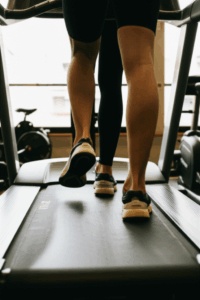In a society often preoccupied with overconsumption, the silent struggle of under-eating frequently goes unnoticed, yet its prevalence and profound health impacts are surprisingly widespread. Whether unintentional due to busy schedules or stress, or a consequence of restrictive diets and body image concerns, consistently consuming fewer calories than your body requires can lead to a cascade of physical, mental, and emotional symptoms. Recognizing these signs is crucial for your overall well-being, as chronic under-eating can compromise everything from bone density and hormone regulation to immune function and cognitive performance. Your body is an intricate system, and when it doesn’t receive adequate fuel, it sends clear signals that it’s in distress, often shifting into “conservation mode” and leading to various nutrient deficiencies.

The Hidden Impact: Unveiling the Signs of Under-Eating
Under-eating means you are consuming fewer calories than your body needs to function correctly, impacting energy levels, physical performance, and overall health. This imbalance can manifest in a variety of ways, some subtle, others more pronounced.
1. Persistent Fatigue and Low Energy
One of the most immediate and common indicators of insufficient calorie intake is a constant feeling of tiredness. Your body lacks the necessary fuel for daily activities, leading to physical and mental fatigue that impairs daily functioning and physical activity. This isn’t just regular tiredness; it’s a “bone-deep exhaustion” that sleep often doesn’t alleviate.
2. Feeling Cold Constantly
When your body doesn’t get enough calories, it conserves energy by decreasing its core temperature, making you feel perpetually chilly, even in warm environments. This can also be exacerbated by a reduction in body fat, which helps regulate temperature.
3. Frequent Illness or Weakened Immune System
A diet lacking essential nutrients compromises your immune system, making you more susceptible to infections like the common cold and flu, and prolonging recovery times. Your body doesn’t receive enough specific nutrients to maintain a healthy immune response.
4. Noticeable Hair Loss
Undereating can lead to hair loss because the body prioritizes essential life-sustaining processes over non-vital ones like hair growth when nutrient intake is insufficient. You might notice your hair thinning or falling out more easily.
5. Reproductive Issues
For individuals of all genders, inadequate food intake can disrupt hormone production, leading to issues such as irregular menstrual cycles (amenorrhea) in females, low testosterone levels in males, and overall infertility. This hormonal imbalance is a common side effect of undereating.
6. Mood Swings, Irritability, Anxiety, or Depression
The brain requires consistent fuel to function optimally. Chronic under-eating can lead to irritability, increased anxiety, mood swings, and depression, partly due to inadequate nutrients impacting brain tissue and the production of mood-regulating hormones like dopamine and serotonin.
7. Chronic Digestive Problems
Undernourishment can slow down your digestive system, resulting in issues like constipation, bloating, reflux, and general gastrointestinal dysfunction. With less food entering the system, there’s less material to form stool, and the body may produce fewer enzymes to break down food.
8. Difficulty Losing or Gaining Weight
Paradoxically, not eating enough can make weight loss harder. When calorie intake is too low, your metabolism can slow down as your body enters “conservation mode” to preserve energy stores. Similarly, gaining weight can be challenging if the body is in a persistent caloric deficit.
9. Being Underweight
While not always a direct result of intentional restriction, a Body Mass Index (BMI) below 18.5 is generally considered underweight and indicates that the body isn’t receiving enough fuel, leading to various associated health risks like osteoporosis, anemia, and developmental problems.
10. Preoccupation or Obsession with Food
A common psychological symptom of under-eating is a persistent preoccupation with food, cooking, recipes, or dieting. This can include constant thoughts about when, what, and how much to eat, or even dreaming about food.
11. Sleep Disturbances
Calorie restriction can interrupt sleep patterns, leading to difficulty falling asleep, frequent waking, and poor sleep quality. Some individuals may experience restlessness, particularly waking early.
12. Dizziness or Lightheadedness
Insufficient food intake can lead to hypoglycemia, or low blood sugar, which manifests as feelings of dizziness or lightheadedness. If the body’s backup glucose supplies in the liver are depleted, the risk of these symptoms increases.
13. Loss of Muscle Mass
When the body doesn’t receive enough calories and nutrients, it begins to break down its own tissues for energy, including valuable muscle mass (catabolism). This not only reduces strength and performance but also further slows metabolism.
14. Skin Problems
Undereating can negatively affect skin health, leading to dryness, thinning, wrinkles, and even lesions, bruising, or broken blood vessels. Malnutrition can cause skin tears regardless of age or BMI.

When to Seek Support
It’s important to remember that undereating can occur for many reasons, including stress, busy schedules, or an abnormally high metabolism, not just restrictive dieting. If you recognize several of these signs in yourself, it’s advisable to consult with a healthcare professional, such as a doctor or a registered dietitian. They can help assess your nutritional intake, identify any underlying causes, and guide you towards establishing healthy eating patterns that adequately fuel your body for optimal physical and mental well-being.






